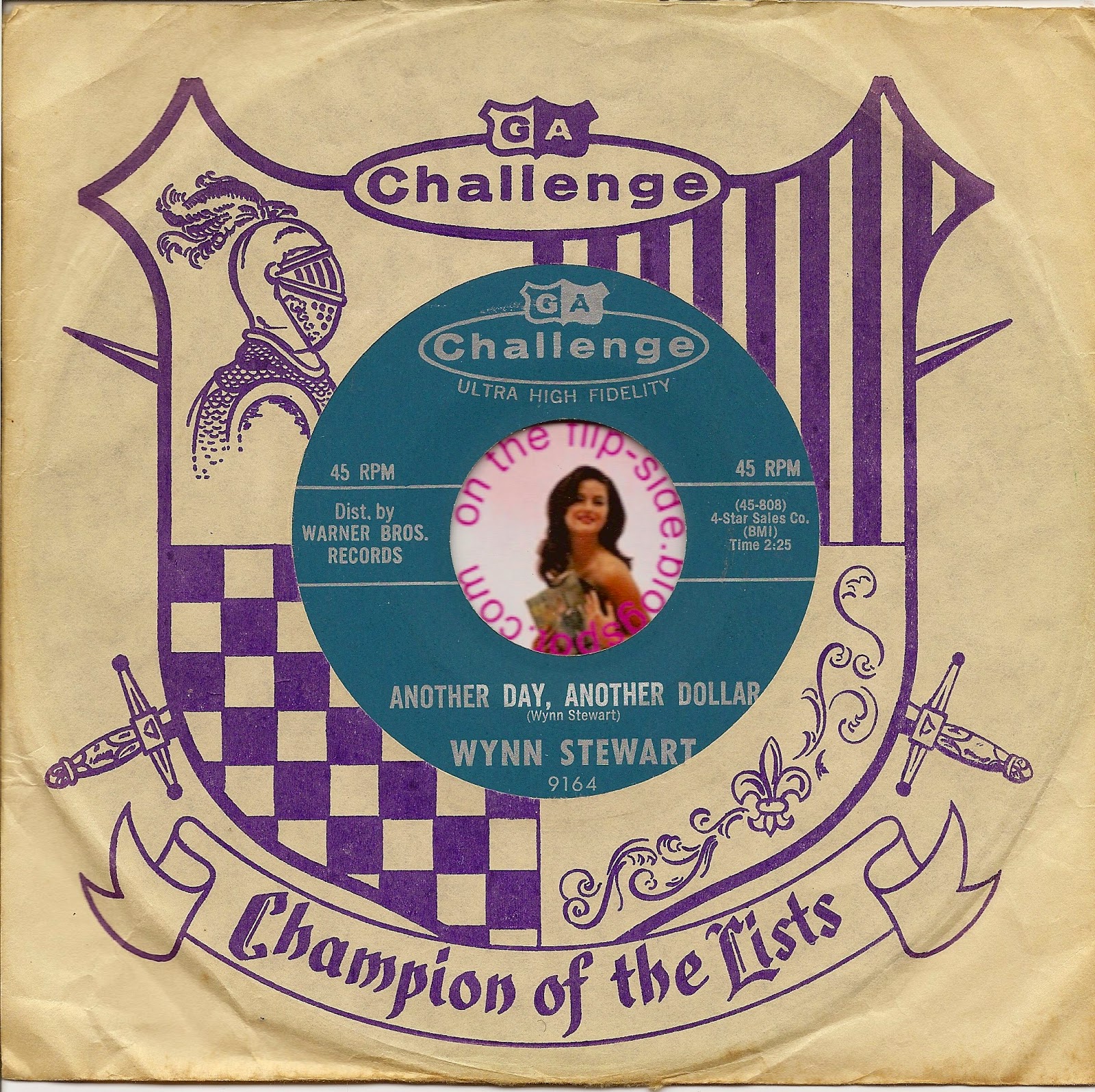Wynn Stewart hailed from Los Angeles where he began playing both kinds of music, Country and Western at Edison Park High School. Many years on the circuit running the triangle of LA to Bakersfield to Las Vegas led to many line up changes, many label changes and eventually the opening of his own club. It was at his own Nashville Nevada in Las Vegas where Wynn Stewart and the West Coast Playboys held a 6-night a week residency playing honky tonk to the Vegas faithful.
Wynn Stewart never hit it big but he did put out some nice records and even was able to give a young Merle Haggard a start in the music biz as The West Coast Playboys' one-time bassist. In 1962, Wynn Stewart and The West Coast Playboys released Another Day, Another Dollar on Challenge Records. The song made it to #27 on the Country and Western charts and features the fine guitar work of Roy Nichols. I'm not too sure who is playing the sledgehammer. Enjoy.




This is new to my ears. Very cool. The way the hammer sound (that starts the song) comes and goes subtly underscores the feeling of unabating repetitiveness that is the 9-5 existence.
ReplyDeleteOn another note I have mixed feelings about hearing a song used in commercials, but generally see it as unfortunate. Anyone watching the game last night was hit over the head with a passage from SImon and Garfunkel's 'Loneliest Boy in New York' in a commercial selling cars. I would rather the meaning of a song remain between the record, the artist and the listener.
For now, back to the salt mines.
"I have mixed feelings about hearing a song used in commercials, but generally see it as unfortunate."
ReplyDeleteWould you feel the same way if the song was used in a movie? Does it bother you when you watch a Wes Anderson film like Rushmore and hear The Who's "A Quick One" or the Creation's "Making Time" right as the character flips out? Is it the use of published music or is it the capitalization of music?
"I would rather the meaning of a song remain between the record, the artist and the listener."
And how is that lofty goal being compromised here? In fact, one could argue, the song and the artist are being given listeners the likes of which few will ever be so lucky as to get. I think the entire point of publishing music is to: a) get the music out to an audience beyond one's own garage; b) make some money. Isn't that was is happening here? The key is that the music is published. It is not personal, it is public.
I wonder, do you make a distinction in your feelings if it is a modern touring audience whose music is being used (see recent examples of Feist, Black Keys, and Edward Sharpe) versus a "retired" act (such as The Sonics, The Kinks or Simon and Garfunkel)? Also curious, do you think their is a distinction if the songwriter negotiated the usage directly (Mick Jagger with Microsoft) vs. a situation like this where the songwriter and performer were not consulted?
As is obvious from my comments and queries, I have no problems with it. I like that the public is being given an opportunity to hear music that may otherwise elude them. I have come across music I did not know about and likely would not have known about if it were not for the commercial. This song and the Edward Sharpe are good examples of that. And, further, in some cases, I even love the artistic statement being put forth when they make an ad that brings a song to life in a new way. An example of that was HP's use of The Kinks' song, Picture Book. (here is a write-up on that song: http://ontheflip-side.blogspot.com/2010/06/song-of-week-picture-book-kinks.html